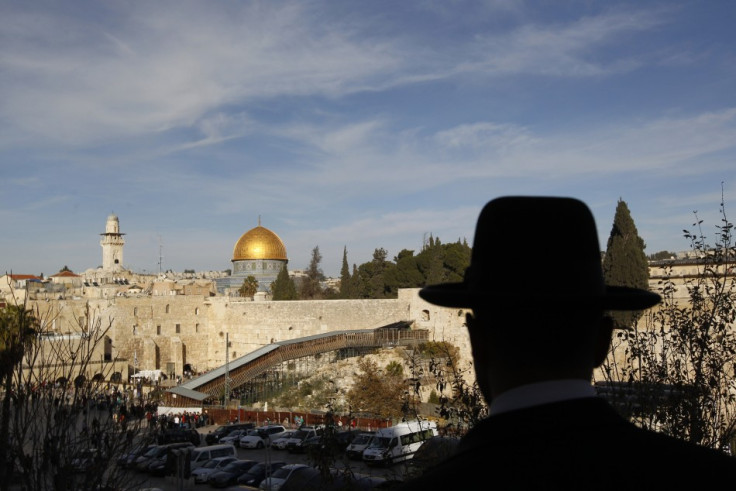Trouble in the Holy Land: Is Israel's Diverse Society Fragmenting?

With scuffles over the Muslim call to prayer, controversy over women's rights and accusations about freedom of expression being stifled, what is happening to diversity and tolerance in the state of Israel?
Tanya Rosenblit, a secular Israeli woman, caused a scandal last week when she refused to follow religiously-prescribed customs of sexual segregation on a public bus bound for an ultra-Orthodox neighbourhood of Jerusalem from her home town of Ashdod.
When a male passenger asked her to move to the back of the vehicle, she refused and stood her ground even after police asked her to comply with the man's request.
As news of the incident spread, a parallel was soon drawn between her defiance and that of Rosa Parks during the racially-segregated 1950s in America. The brave black woman struck a blow for freedom in Montgomery, Alabama, on 1 December, 1955, when she refused to give up her seat to a white passenger on a public bus and the encounter became a defining moment in the black civil rights movement.
Unlike America during that period, however, 21st-century Israel has responded to growing public criticism of ultra-Orthodox religious practices by announcing plans to launch a private bus line that would strictly enforce the practice of sexual segregation in the Jewish state.
A group of ultra-Orthodox Jewish millionaires have said they are considering funding private bus transportation in Haredi (ultra-Orthodox) neighbourhoods in Jerusalem, on which male and female passengers would be required to sit separately.
Stirring Tensions
This is just the latest development in the ongoing debate between secularists and Haredi Jews about gender segregation in Israeli society.
In November, a Facebook campaign called Uncensored began distributing hundreds of posters of women across Jerusalem in order to "object to the sexist use of women in ads". Many of these posters were removed or defaced by members of the ultra-Orthodox community, who consider images of women to be obscene.
But gender segregation is not the only issue that isstoking upliberal opinion in Israel.
A recent advertising campaign by the Israeli Ministry of Absorption, which targeted Israeli expatriates living in the Unites States, was hastily pulled after it was considered "demeaning" to American Jews.
The campaign, which was launched under the tagline "Before Hanukkah turns into Christmas, it's time to come back to Israel", was heavily criticised for implying that Jewish values could not be upheld in any country other than Israel.
The encroaching influence of the ultra-Orthodox Haredi community and right-wing Zionist philosophy on the Israeli public sphere has worried secularists and liberals at home and abroad.
Liberal Democracy?
Frank La Rue, UN Special rapporteur and independent human rights expert, recently criticised Israel for its restrictions on freedom of expression.
"Truly democratic societies are measured by their respect of human rights and, in particular, the right to freedom of expression as a 'facilitator' of all other rights. Freedom of expression does not only include expression of views that are widely accepted by the majority of the population or reflect the government's policies, but also minority views and dissenting opinions," Mr La Rue said.
In an article entitled "Israel isn't good for the Jews anymore", the journalist Phillip Weiss argued that the "restrictions on democracy, the curbs on women, the intransigence vis-a-vis the Palestinians... the indifference to the Arab Spring" have led to a growing sense of alienation between the international Jewish community and Israeli society.
The simmering tensions between secularists, liberals, Zionists and the ultra-Orthodox are further compounded by the complex ethnic and religious mix that constitutes Israel itself. Israeli Arabs, who are estimated to make up to 20 percent of the population of the Jewish state, are increasingly striving to have their voices heard as part of a more diverse society.#
Religious and Ethnic Divisions
Citing the issue of "noise pollution", Israeli legislators are currently considering a controversial law that would ban mosques from using loudspeakers to call worshippers to prayer. Muslims have responded by saying they are being unfairly targeted and that the proposed law has overtly racist motives.
Palestine's recent recognition by UNESCO has further exacerbated the Israeli right, who see Palestinian statehood as an obstacle to peace in the region. Supporters say that Israel should be supportive of the move if it is serious about pursuing a two-state solution to the Arab-Israeli conflict.
Israeli politicians, who have long held up their country as a shining example of "the only free democracy" in the Middle East, are finding it increasingly difficult to paper over the cracks appearing between rival factions of Israeli society. Headed by Prime Minister Binyamin Netanyahu, described as a "war monger" by a source close to Israeli intelligence, it looks unlikely that the widening fissure between Israeli public discourse and its social reality will be reconciled any time in the near future.
Israel is a country with a long and troubled history of uncertainty and instability - a tradition that looks set to continue, if not worsen, for many years to come.
© Copyright IBTimes 2024. All rights reserved.





